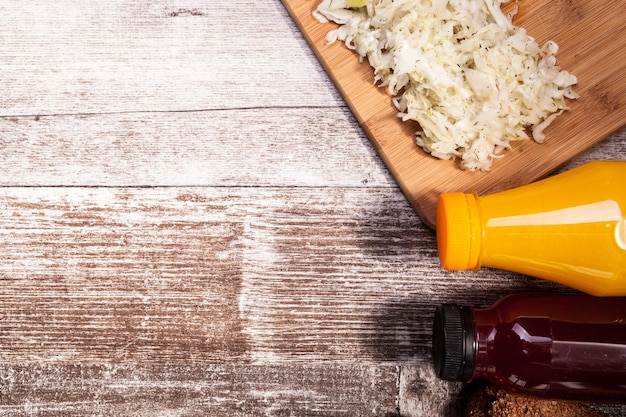
I often talk about how great bone broth is for healing, but fermented foods are just as crucial for maintaining a healthy body. They’re a fantastic way to get probiotics in your diet, and the best part is, they’re simple and inexpensive to make at home.
Fermented foods are preserved through lacto-fermentation, where natural bacteria consume the sugars and starches, creating lactic acid that preserves the food. These foods can last in a cool place for up to a year or more. This method not only preserves the food but also creates beneficial enzymes, B-vitamins, omega-3 fatty acids, and various probiotics. Fermentation makes food easier to digest and often boosts its nutritional value.
For centuries, fermented foods were a staple in our diets until technology provided different preservation methods. But fermentation wasn’t just about preserving food; it offers numerous health benefits. Many health advocates today are encouraging the return of fermented foods to the American diet, and now unpasteurized fermented foods and drinks are often found in grocery stores.
While probiotic supplements are useful, fermented foods usually provide more benefits. They contain beneficial enzymes and other substances that positively affect the gut, even if the probiotics themselves don’t always survive the gut’s harsh environment. These foods also contain essential digestive enzymes that help break down and absorb food properly. Although some probiotics may not survive the stomach’s heat and acidity, the enzymes do withstand the conditions.
Fermentation helps with digestion by breaking down complex compounds in food. For example, proteins are broken down and “pre-digested” through fermentation, making them easier to digest. The same applies to grains and dairy products, where fermentation breaks down anti-nutrients and hard-to-digest elements like lactose, making these foods more digestible.
This is particularly beneficial for children and those with digestive issues, as fermentation helps unlock nutrition that might otherwise go unabsorbed. Instead of dealing with nutrient depletion, which complicates enzyme production and nutrient absorption, fermented foods help tackle these deficiencies.
Fermented foods boast a more diverse range of probiotic strains than supplements. Research shows that probiotics from supplements tend to be less varied, while those from fermented foods are more diverse, suggesting they contain more strains.
Fermenting your own foods at home saves money compared to buying probiotic supplements. While supplements can restore gut health quickly, home fermentation offers the most cost-effective benefits. You’d be amazed at what you can ferment—from vegetables to dairy—all easily done at home. Fermented vegetables are widely recognized and pack a powerful nutritional punch, making them worth trying.
Yogurt is a traditional fermented dairy product, but store-bought versions often lack probiotics or are loaded with sugar, negating their benefits. Making your own yogurt ensures that it’s healthy and digestible, but if you’re lactose intolerant, there are non-dairy alternatives.
Though I haven’t explored fermenting fruit extensively, I plan to try it soon. Fermenting fruit preserves it but requires careful monitoring since fruits have more sugar, which could lead to alcohol fermentation if not checked. Keep fruit fermentation short, and adding whey, kombucha, or water kefir can help maintain the right fermentation process.
We don’t consume soda in my household. Instead, we opt for healthier drinks like water, herbal teas, and homemade fermented beverages. These fermented drinks are a healthier treat that’s good for the body.
Surprisingly, you can also ferment meat and fish, commonly known as curing, which is similar to fermenting other foods. Although I don’t consume much-cured meat, I have alternatives like corned beef that are equally tasty.
Not only are fermented foods more affordable than probiotic supplements, but they also enhance digestion and nutrition. Plus, fermenting at home is straightforward. Even if you’re hesitant at first, you’ll likely grow to love fermenting! Do you enjoy fermented foods? Which ones are your favorites?

